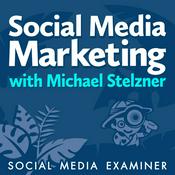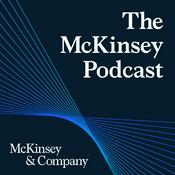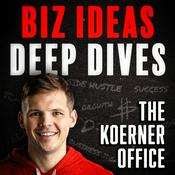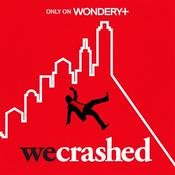69 episodes

Focus + Feedback Loops
2026/1/03 | 6 mins.
Hello, fellow.Two things are extremely important if you wanna become a good professional, in any field. (That includes yours as well, so read on! 😀) 1 – The first thing is focus. 2 – The second thing is the ability to stay in a feedback loop. And this comes to my mind every time when I’m on an archery field, or in this case, a 3D Parcours.You heard of those if you are on social media, but do you actually “focus” on focusing on a daily basis? Are you running a constant feedback loop for yourself? Anyway, it makes sense to read on:Why I Like Archery as a SportThe reason I like it as a sport is exactly that. It’s a sport, and since I’m mostly a software development entrepreneur, I don’t do much sport while I’m at work. Still, I need to, because there is no other activity I can personally do that offers that level of precision in focus.Archery forces you to be precise about what you do, when you aim, when you release, when you plan your shot, and what you’re doing with your body. And then of course you get the outcome.Nothing is more frustrating than when you mess up a shot, lose your arrow in the forest, and realize it was because your mind was off and not on point. Regret .. Reflect .. Accept .. Adapt … Let’s get into that stuff:The Loop: Commit, Execute, AdaptYou commit to a shot, you plan something, you execute, then you realize what actually happened, and then you adapt. If I mess up, I think about what I have done wrong at this position, from that angle, with that arrow type, at that distance. Was my finger not in the correct position? Was the anchor off? Did I rush? Then I adapt for the next shot as long as it works.This is what makes you better every time you release an arrow, because you’re doing two things at once:* Correct what you’ve done wrong (fast, practical, no drama)* Remember what you’ve done right (so you can repeat it on purpose)That’s also why, when I miss a shot, I take a follow-up shot, and I take a follow-up shot again, and then it’s over. But when I hit, I memorize that and go for the next target. There are enough targets. I want my brain to remember what works and what doesn’t, and that is simply a practice.In both failure and success, I remember intentionally what worked and what did not.Bragging and RegrettingA lot of archers do this; I’ve adopted it and use it in real life, too. I call it bragging and regretting.* Regret is short-term. I regret what I just did wrong right now because I can do it better.* Then regret is over. I accept it, adapt, correct, execute again, and see what happens.* Bragging is pattern storage. When I hit, I say: This is done right, remember that one.Important: Don’t brag or regret any longer; that is necessary. That’s to handle your short-term feelings, which are connected to yours. It’s a part of my stoic practice to let these emotions come up and instantly control them. NEVER drive home and tell yourself:* “I messed up so many shots, what a bad, I hate my life” (That’s nonsense)* “Tell everybody how great of an archer you are” (Which you aren’t in relation to others)It’s only about yourself, your progress, and your learning.Why Traditional Gear MattersA personal point: But after years on the range at 30+ years of coding, 18+years of entrepreneurship, I concluded:It helps that this is a traditional bow. No optics, no helping devices. If you want to do something, you need to do it all by yourself. You have a very basic rest with a little bit of fur on it, and that’s it. This is what I really like. It’s also why I never bought a compound bow or an Olympic bow. I wanted it that way.Because it puts you into situations that are a little bit like the entrepreneurial situation, it’s not standardized. It’s not a specific range, a specific angle, a specific weather condition.Probably that’s why I like being in the more chaotic startup space than in corporate. 😀Real Conditions, Real AdaptationIt is very cold right now, around minus five degrees. It’s very slippery. My fingers are getting chilly, and at some point you need to adapt to those things. That is not how you shoot indoors, or how you shoot in an indoor competition.Even my nocks flew off today. In summer, it works very well with those, now they all flew off while I was shooting. Some I wasn’t able to find again, so I had to shoot with other arrows. I have two types of arrows with me right now, and the entire range I’m shooting with two arrows that are not meant to be shot with that bow. A similar kind of bow, but not the same, different draw weight. That means I need to adapt again.So I’m doing the entire processing in real time:* Use what I know from the past* Apply it to different arrows, different bow behavior* Under colder conditions than usual* On a field, I’m not very often on* Heavy, steep terrain; before most shots, I was climbing an icy hill.All these things together make you a better shooter over time because you need to constantly reflect, adapt to what you have just done, and stay in focus.The Same Thing in Software and EntrepreneurshipIf you don’t have those two abilities, you cannot really execute. And that is the very same thing as a software developer and entrepreneur, a tech entrepreneur. You don’t know what happens. The environment is different every time. The conditions are different every time, and you need to adapt.You don’t know:* What clients will say* What users will say* How the market responds* If employees stay with you, and who you’ll get next* What issues newer tech will bringAnd the feedback loops can be very fast there as well. I need to focus on something one day, focus only on these signals, then move on. But while you do that, you need to become better every time. Otherwise, you cannot keep up.The fear of not being able to keep up has been and continues to be driving me. A reason I became stoic is that I can control the emotions that come with it. Is it necessary to have this drive? Yes.If you try to tell me that drive isn’t necessary, you are most likely not an entrepreneur 😀 That’s fine, it’s a particular thing to do and get along with. I would be a horrible employee these days, I can tell.Do Something That Trains ThisThat’s what I wanted to tell you today, because I think it’s a helpful metaphor. And I’d recommend you do something like that as well. It must not be archery. People do boxing; they do all sorts of sports where you need focus, execution, reflection, adaptation, and improvement.Because when you do something while you’re walking, while you’re breathing, while your heart is pumping a little bit, you do it more intensely and you learn more. There’s evidence for that too. We know better when we move, and at best, when we’re outside.Not much sunshine today, but I’m outside, and I can already say: it works pretty well.I wish you a great day. I’ll continue now because my butt is freezing here on that bench.See you next time. Goodbye.—Adrian This is a public episode. If you'd like to discuss this with other subscribers or get access to bonus episodes, visit blog.adrianstanek.dev/subscribe

Do you have Clarity in your Life?
2025/12/31 | 6 mins.
We often discuss the importance of clarity — clarity in communication, clarity in vision, and clarity in life. However, when you examine it closely, clarity is one of the most misunderstood things we pursue.Because it’s easy to say, “I want to have clarity.” It’s much harder, actually, to keep it.You might have moments where everything feels aligned, where you know exactly what to do next, and then, just a few days later, the fog returns.Let’s talk about that kind of clarity: the clarity of direction in life.And to make it simple, let’s use a metaphor.The Driving MetaphorImagine you’re driving a car. To drive, you need three things: acceleration and braking, steering, and navigation. These three things serve as metaphors for how we navigate life.1. Acceleration & Braking → Your Physical HealthYour body is your engine. It gives you the energy to move forward, to build momentum, to slow down when needed. If your physical energy is off, if you’re tired, stressed, or unwell, you can’t accelerate toward anything meaningful. This is a public episode. If you'd like to discuss this with other subscribers or get access to bonus episodes, visit blog.adrianstanek.dev/subscribe

Discipline Is Not Optional – It’s the Foundation of Real Leadership
2025/11/12 | 2h 42 mins.
Most leaders obsess over tools, tactics, frameworks, KPIs, everything except the one thing that actually determines whether their team wins or loses: themselves.This episode goes straight into the uncomfortable truth: if you don’t lead yourself with discipline, integrity, and clarity, you have absolutely no business leading others. That’s not motivational fluff, that’s reality. And it’s the message Dr. Alexander Madaus has spent decades fighting for.Who Is Dr. Alexander Madaus?Dr. Alexander Madaus isn’t your typical leadership trainer. He’s a former German military team leader, an entrepreneur, a medical doctor specializing in intensive care and emergency medicine, and — famously — the only German who has ever trained with U.S. Navy SEALs.His journey began immediately after school, when he joined the German military while simultaneously establishing his first business in Munich. Later, he paid his way through med school, became an MD, and spent a decade making life-and-death decisions in chaotic environments where leadership and clarity weren’t optional.Today, through the Rising King Academy, he coaches entrepreneurs and business owners on character-based leadership, rooted in discipline, candor, trust, and building high-performance A-player cultures — not management theater.00:00 wF-AlexanderMadaus00100:49 REEL02:15 START This is a public episode. If you'd like to discuss this with other subscribers or get access to bonus episodes, visit blog.adrianstanek.dev/subscribe

Self-Control is Leadership
2025/10/30 | 4 mins.
Mastering Self-Control: The Key to Effective LeadershipIn this episode, explore the importance of self-control for effective leadership. Learn how managing emotions like sadness, anger, and grief can help you serve others better and maintain your credibility as a leader. Understand why self-discipline and reflecting on your emotions are crucial for handling daily challenges. Discover the four pillars of leadership—credibility, being a role model, having a vision and mission, and challenging oneself and others. By cultivating the right mindset, you can become a strong, emotionally stable leader. Tune in for practical tips and insights into mastering self-control and leading with confidence.00:00 Understanding Emotional Overwhelm00:38 The Importance of Self-Control in Leadership01:44 Reacting vs. Acting on Emotions02:31 Accepting and Reflecting on Emotions03:02 The Four Pillars of Leadership04:17 The Role of Mindset in Leadership04:46 Final Thoughts and Encouragement This is a public episode. If you'd like to discuss this with other subscribers or get access to bonus episodes, visit blog.adrianstanek.dev/subscribe

Somewhere along the way, we lost the ability to dream
2025/10/27 | 4 mins.
Somewhere along the way, something changed. We stopped dreaming the way we once did. When we were children, the world felt open and full of possibilities. We could see our potential so clearly. Becoming a firefighter, a doctor, or an astronaut felt within reach. Not because those paths were easy, but because they felt possible. We believed in our future selves without hesitation. Failure didn’t scare us. When we fell off the bike, we got back up. We were frustrated, yes, but we tried again. We didn’t question whether we were worthy of learning how to ride. We simply believed it was a matter of time.As adults, something shifted. We became smarter, more practical, and more careful. We learned to navigate opinions, expectations, and social pressure. Slowly, almost invisibly, our dreams began to shrink. They started to fit neatly inside the boxes that other people drew for us. Potential didn’t disappear. It simply faded into the background. It became quieter. It turned into a gentle pull toward something bigger, something we could become if resistance didn’t hold us back.Resistance is real.It shows up as doubt. It shows up as fear of judgment. It shows up as subtle pressure to play small. And for many people, this resistance becomes stronger than their vision. It is what keeps us from starting, from risking, from stepping forward. We tell ourselves stories about why now is not the right time, why others are more capable, or why the dream is unrealistic. But none of that is about our actual potential. It is the voice of resistance doing its job.Vision & LeadershipThis is exactly where leadership comes in. Vision and mission are not just fancy words used in corporate meetings. They are the foundation of real leadership. They are about projecting a future version of yourself or your team that does not exist yet and believing in it deeply enough to make it real. That is what children do naturally when they dream. Leaders need to relearn that skill. Because leadership, at its core, is not about control. It is about seeing something that others cannot see yet and choosing to walk toward it anyway.Great leaders do not lose their ability to dream. They protect it. They nurture it. They hold a vision even when nobody else believes in it. They give shape to potential, first within themselves, then for the people around them. They turn something invisible into something tangible. And that is why reconnecting with your potential is not a nice-to-have. It is a leadership discipline. You cannot lead anyone toward a future you cannot imagine yourself.If you want to lead, you need to dream again, not with the naive certainty of a child, but with the clarity and courage of someone who understands resistance and chooses to act anyway. Vision is the spark. Mission is the path. Leadership begins when you dare to reclaim the part of yourself that still believes something bigger is possible. Because if you cannot imagine it, no one will follow you there.— Adrian This is a public episode. If you'd like to discuss this with other subscribers or get access to bonus episodes, visit blog.adrianstanek.dev/subscribe
More Business podcasts
Trending Business podcasts
About Worth Following – Podcast by Adrian Stanek
Listen to Worth Following – Podcast by Adrian Stanek, Honest Money and many other podcasts from around the world with the radio.net app

Get the free radio.net app
- Stations and podcasts to bookmark
- Stream via Wi-Fi or Bluetooth
- Supports Carplay & Android Auto
- Many other app features
Get the free radio.net app
- Stations and podcasts to bookmark
- Stream via Wi-Fi or Bluetooth
- Supports Carplay & Android Auto
- Many other app features


Worth Following – Podcast by Adrian Stanek
download the app,
start listening.


































